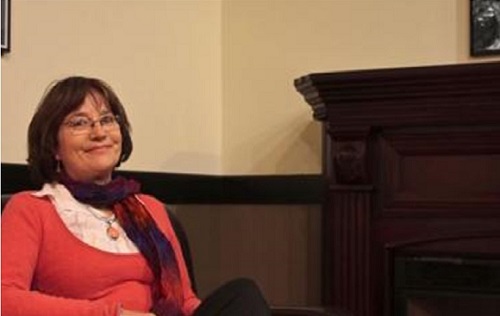
It was the mid-1970s and Dr. Judy Whitehead was working on her undergraduate degree at the University of British Columbia when a life-long interest began to steer her toward what became the focus of her future research. “I had always been fascinated with Asia growing up on the West Coast, particularly with India,” says Whitehead, currently an associate professor in the department of anthropology at the University of Lethbridge. “And there was a wonderful faculty there [at UBC]. I was able to take some Hindi and Asian Studies courses to supplement my anthropology major.” The UBC faculty at the time included Michael Ames, then the president of Shastri Indo-Canadian Institute, who, says Whitehead, encouraged many people to get involved with work in India. Whitehead’s involvement with Shastri began when she received a student fellowship for Punjabi language study in Patiala in 1976. She went on to pursue her graduate work and a number of research projects all with the common themes of marginality and social justice. Most of her work has involved collaborative projects with researchers in India. “The Shastri Institute has done a great job in spreading interest in India throughout Canada and certainly it was very formative in my career,” says Whitehead whose PhD work focused on Indian agriculture and how gender and cast entered into labour market decisions in rural Uttar Pradesh. She has also investigated how colonial categories of femininity were introduced into India and in the 1990s, worked on a five-year research project in involving the Narmada dam oustees. In 1999, Whitehead received a Women in Development project grant with which she continued her research on the Narmada dam, specifically on the topic of gender and resettlement. And most recently, in 2005, Whitehead completed the Shastri Applied Research Project (SHARP) focusing on urban poverty and public participation and policy in Mumbai with regards to the needs of slum dwellers. But since there’s no rest for a questioning mind , she is currently writing up the material from that research and has received a faculty research grant. Her new work focuses on how domestic labour in central Mumbai is being reshaped as slum dwellers in central Mumbai are moving to the northern and northeastern suburbs. “The way it [India] is changing so dramatically offers a lot of opportunities for researchers and with a kind of policy emphasis that both Shastri and the Indian government tends to favour,” says Whitehead. But even as a seasoned researcher with 25 years experience in the field, Whitehead is always learning from India and hopes that her younger counterparts will do the same. “It’s an exciting time to be involved in India studies and there remains a need to promote better dialogue and increased multicultural awareness in Canada,” says Whitehead. “I think it’s important for young researchers…to appreciate the fact that we have a great deal to learn from India and that learning is a two-way process.”
